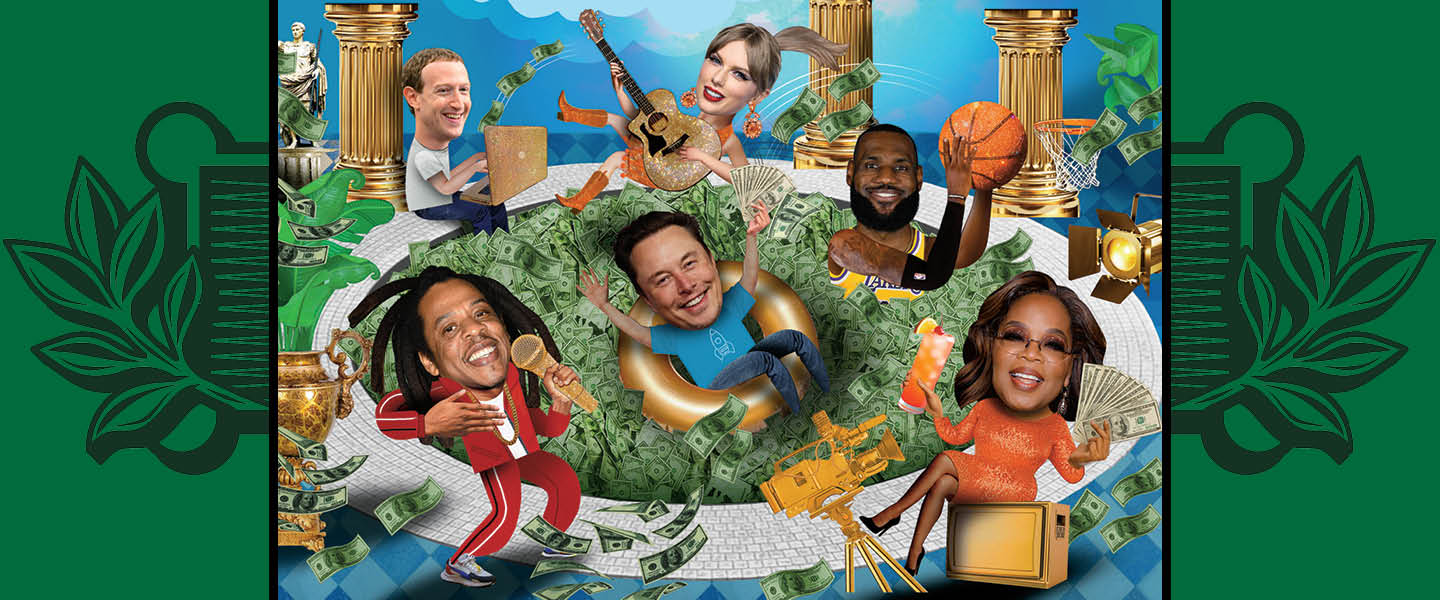Too many billionaires?
We shouldn’t have any at all.
Billionaire wealth is often the result of unfair economic practices. Since the 1980s, unionization, the real value of the minimum wage, and worker protections have decreased as profits for business owners and investors have increased. That has allowed the superrich, whose fortunes are heavily invested in stocks, to obtain a larger share of the nation’s wealth—wealth we all produced together.
And what happens to those earnings? A White House study found that the richest 400 families in the U.S. pay a lower percentage in taxes than anyone else, eventually passing their wealth on to their children. We need to change our tax laws so that the rich pay their fair share. That money could help build roads, fund climate action, and address poverty.
One reason extreme wealth is harmful to society is that it creates an uneven playing field in our democratic system. Billionaires have the money to set up think tanks to devise policies that benefit them, then hire lobbyists and make huge financial donations to influence lawmakers. Ordinary people can’t do that.

